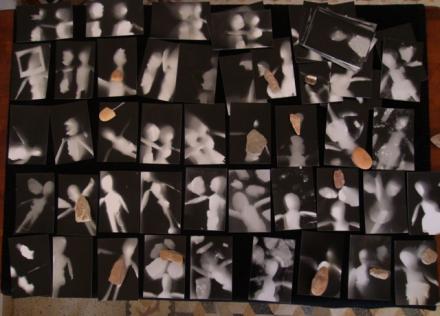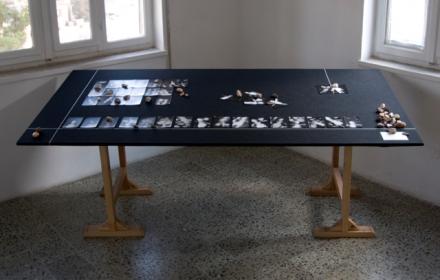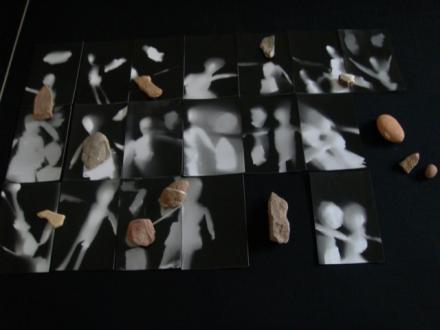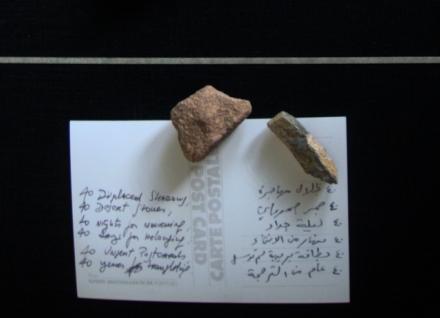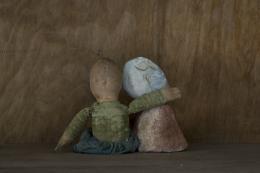Cecilia Mandrile
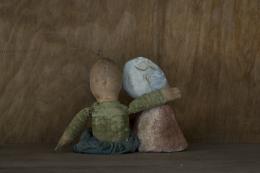
BETWEENING
(40 Displaced Shadows + 40 Desert Stones = 40 Unsent Postcards)
Unveiling intersections between nomadic practices within different cultures,
Betweening proposes a dialogue conceptually based in the improvised poetic encounters among both Gauchos and Bedouins. Shaped by the social mistrust towards wanderers, solitary nomad subjects embark on their own ‘poetic battle’: when moving may become the deepest form of entrapment.
Project Background
(Moving Ground: The Desert Inside)
In the language of animation, to tween means to have a change made between two objects. In this way, moving, morphing, transforming, One becomes OneOther. Following this concept, Betweening, a traveling and practice based research, focuses in the sense of incomplete-ness experienced along that transition process.
Betweening, emerges as a response to my recent experience living and working in Middle East as a traveling South American woman artist, and through this, a continuation on my rehearsing of visual translations of displacement. Living and working in Jordan, I had the opportunity of dialoguing with local artists and writers, as well as being adopted by a Bedouin family.
Throughout this experience, I intended to provide some understanding to my effortless adaptation and adoption of this place of the world as another ‘home’: a place where the concept of displacement is felt from inside every day, where doors do not close, they simply lean against their frame; a context in which the refuge is made, unmade and remade every day. The desert here is found as a ‘space’ where, even without an apparent common language, communication could be profound.
This research intends to unveil and articulate the discovering of ‘intersections’ between Latin American and Arab culture; with particular reference to the poetic battle established in the encounters between Bedouins as well as among Gauchos (the vanishing nomadic cattle herder of the Pampas).
Based in the ‘word war’ practiced between nomadic oral poets, both in South America and in the Arab World, I intend to articulate the motivations and intentions of a form of communication that is established between two other-nesses in a space of blurred frontiers, where the nomads are forced to settle, and settled ones, to become nomads.



